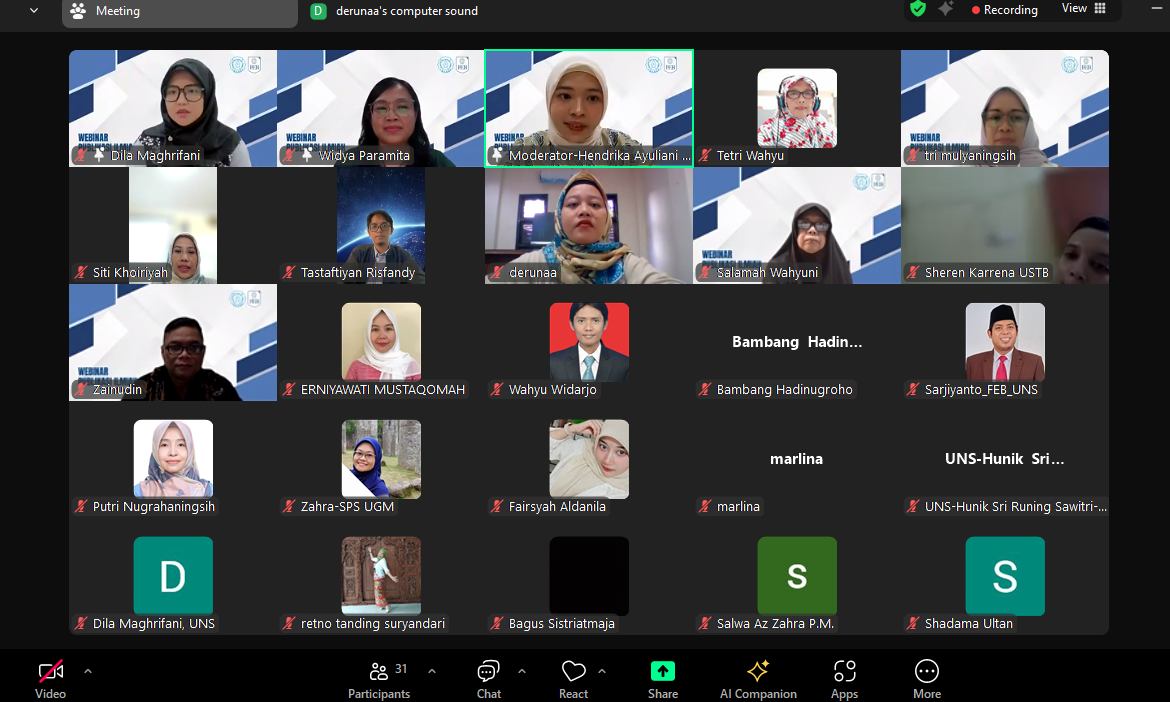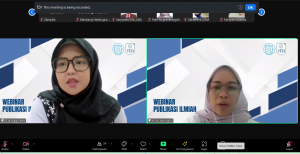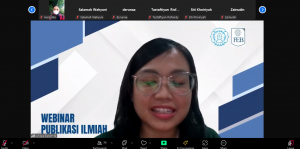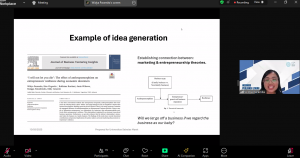
P4M FEB UNS Organizes Scientific Publication Webinar on Strategies for Publishing in Reputable Journals
In an effort to improve the quality and competitiveness of scientific publications in reputable journals, the Center for Research and Community Engagement Development (P4M), Faculty of Economics and Business (FEB), Universitas Sebelas Maret (UNS), held a Scientific Publication Webinar titled “Strategies for Publishing in Reputable Journals: Optimizing the Quality of Scientific Work to Be Indexed in Scopus and SINTA” on Thursday, 13 March 2025. The virtual event featured Dr. Widya Paramita, A.E., M.Sc., Ph.D., lecturer, researcher, and Editor-in-Chief of the Journal of Indonesian Economy and Business (Scopus Q3), Universitas Gadjah Mada, with an H-index of 15.
 The webinar discussed effective strategies for preparing high-quality scientific articles and understanding publication standards in reputable journals, covering writing structure, content development, and navigating the review process.
The webinar discussed effective strategies for preparing high-quality scientific articles and understanding publication standards in reputable journals, covering writing structure, content development, and navigating the review process.
In her opening remarks, Vice Dean for Academic and Research Affairs FEB UNS, Prof. Tri Mulyaningsih, S.E., M.Si., Ph.D., emphasized that conducting research and ensuring its results benefit society is a fundamental responsibility of academics. She highlighted two crucial points to the speaker: the importance of conducting meaningful research and presenting it effectively.
 “We hope Dr. Widya will cover not only the substance of impactful research but also how to present it in an engaging manner. Good packaging alone is not enough without strong content, and vice versa—substantial research will struggle to be published if not presented attractively,” she noted.
“We hope Dr. Widya will cover not only the substance of impactful research but also how to present it in an engaging manner. Good packaging alone is not enough without strong content, and vice versa—substantial research will struggle to be published if not presented attractively,” she noted.
Dr. Widya pointed out that Indonesian researchers often present interesting topics, yet there is still room for refinement, particularly in how research topics are defined. “We’re not just talking about what we want to research, but how we can structure it in greater detail to give it clear direction and purpose. This is still a work in progress for many of us,” she explained.
 She shared that the Journal of Indonesian Economy and Business has a high rejection rate of around 90%, primarily due to insufficiently defined topics despite their relevance. Papers accepted in reputable journals, she added, generally meet several criteria: theoretical contribution, methodological rigor, managerial and practical relevance, strong empirical support, clarity and coherence, ethical standards and transparency, alignment with journal scope, engagement with recent literature, and a strong review and revision process.
She shared that the Journal of Indonesian Economy and Business has a high rejection rate of around 90%, primarily due to insufficiently defined topics despite their relevance. Papers accepted in reputable journals, she added, generally meet several criteria: theoretical contribution, methodological rigor, managerial and practical relevance, strong empirical support, clarity and coherence, ethical standards and transparency, alignment with journal scope, engagement with recent literature, and a strong review and revision process.
“As an editor, theoretical contribution is the foremost consideration when assessing a submission. While empirical and methodological contributions are important, in scientific publishing, theoretical advancement is non-negotiable,” she stated.
Dr. Widya also shared practical tips on how to identify strong research ideas and approaches. Following her presentation, participants were given the opportunity to engage in an open discussion session.

